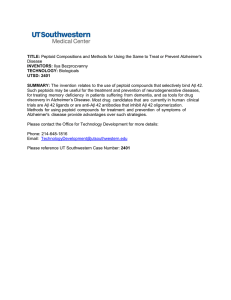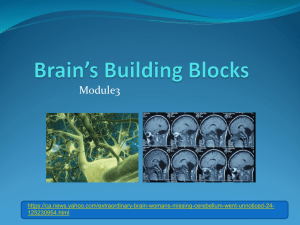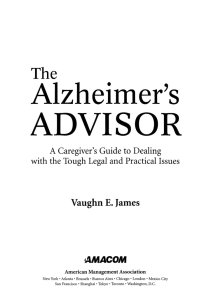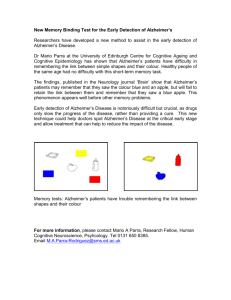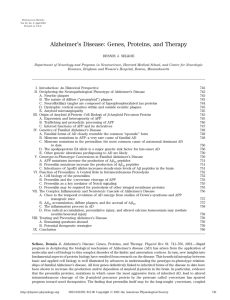WIBR Seminar ‘Neuropathological and phenotypic profile of familiar vs.
advertisement
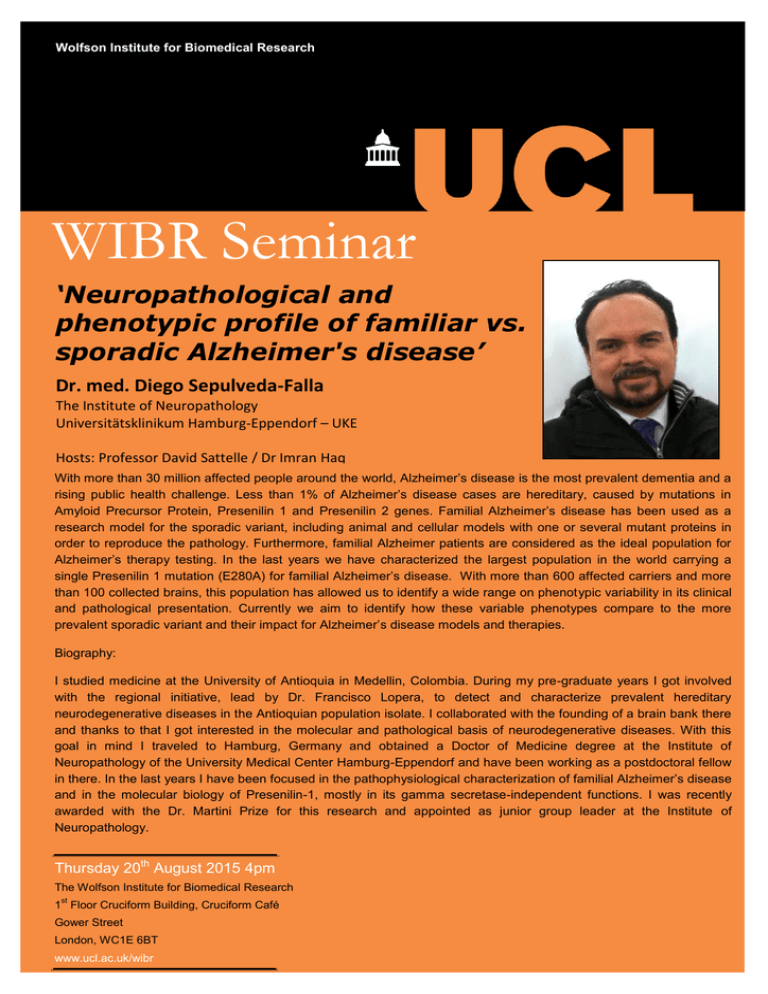
Wolfson Institute for Biomedical Research WIBR Seminar ‘Neuropathological and phenotypic profile of familiar vs. sporadic Alzheimer's disease’ Dr. med. Diego Sepulveda-Falla The Institute of Neuropathology Universitätsklinikum Hamburg-Eppendorf – UKE Hosts: Professor David Sattelle / Dr Imran Haq With more than 30 million affected people around the world, Alzheimer’s disease is the most prevalent dementia and a rising public health challenge. Less than 1% of Alzheimer’s disease cases are hereditary, caused by mutations in Amyloid Precursor Protein, Presenilin 1 and Presenilin 2 genes. Familial Alzheimer’s disease has been used as a research model for the sporadic variant, including animal and cellular models with one or several mutant proteins in order to reproduce the pathology. Furthermore, familial Alzheimer patients are considered as the ideal population for Alzheimer’s therapy testing. In the last years we have characterized the largest population in the world carrying a single Presenilin 1 mutation (E280A) for familial Alzheimer’s disease. With more than 600 affected carriers and more than 100 collected brains, this population has allowed us to identify a wide range on phenotypic variability in its clinical and pathological presentation. Currently we aim to identify how these variable phenotypes compare to the more prevalent sporadic variant and their impact for Alzheimer’s disease models and therapies. Biography: I studied medicine at the University of Antioquia in Medellin, Colombia. During my pre-graduate years I got involved with the regional initiative, lead by Dr. Francisco Lopera, to detect and characterize prevalent hereditary neurodegenerative diseases in the Antioquian population isolate. I collaborated with the founding of a brain bank there and thanks to that I got interested in the molecular and pathological basis of neurodegenerative diseases. With this goal in mind I traveled to Hamburg, Germany and obtained a Doctor of Medicine degree at the Institute of Neuropathology of the University Medical Center Hamburg-Eppendorf and have been working as a postdoctoral fellow in there. In the last years I have been focused in the pathophysiological characterization of familial Alzheimer’s disease and in the molecular biology of Presenilin-1, mostly in its gamma secretase-independent functions. I was recently awarded with the Dr. Martini Prize for this research and appointed as junior group leader at the Institute of Neuropathology. Thursday 20th August 2015 4pm The Wolfson Institute for Biomedical Research st 1 Floor Cruciform Building, Cruciform Café Gower Street London, WC1E 6BT www.ucl.ac.uk/wibr

